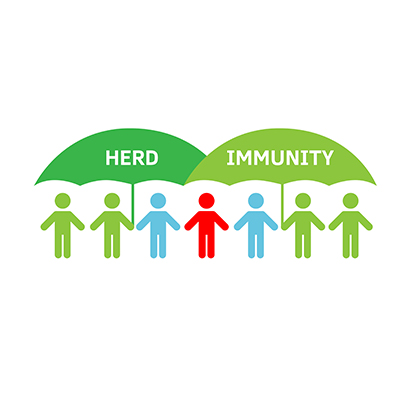What is Domestic Violence?
Posted on May 27, 2020
What is the Crime of Domestic Violence in Washington State?

Definitions (C)
(3) "Domestic violence" means: (a) Physical harm, bodily injury, assault, or the infliction of fear of imminent physical harm, bodily injury or assault, between family or household members; (b) sexual assault of one family or household member by another; or (c) stalking as defined in RCW 9A.46.110 of one family or household member by another family or household member. [Quoted from Revised Code of Washington (RCW) 26.50.010]
What is the crime of stalking In WA. State law?
Stalking.
(1) A person commits the crime of stalking if, without lawful authority and under circumstances not amounting to a felony attempt of another crime:
(a) He or she intentionally and repeatedly harasses or repeatedly follows another person; and
(b) The person being harassed or followed is placed in fear that the stalker intends to injure the person, another person, or property of the person or of another person. The feeling of fear must be one that a reasonable person in the same situation would experience under all the circumstances; and
(c) The stalker either:
(i) Intends to frighten, intimidate, or harass the person; or
(ii) Knows or reasonably should know that the person is afraid, intimidated, or harassed even if the stalker did not intend to place the person in fear or intimidate or harass the person. (More)
Also See: Washington State Law Help site
In countries where women have the opportunity for equal education, are able to vote and free to apply themselves in any vocation, society and the law accept equality of the sexes and physical and emotional abuse less and less acceptable. As time passes, the concept of domestic violence has expanded to include violence or threats of violence between intimate partners, family members and even roommates.
In a legal context, participants are classified as perpetrators (the offender) and the victim. While the offenders are predominately male and the victims are female, society is also beginning to recognize male domestic violence victims.
In assessing a domestic situation to identify the perpetrator, look for patterns of behavior intended to control, dominate and manipulate the other person. Such behaviors include: intimidation such as physical or sexual abuse, threats of physical violence, acts by one household member against another that causes the other member physical or emotional harm, harassment such as stalking, financial control by depriving the victim of money, depriving the victim of food or sleep, control through neglect, verbal or psychological abuse or emotional insults intended to destroy the victim’s self confidence and self-esteem.
It's important to remember that the perpetrator-victim roles are not assigned by sex. Either partner in a domestic violence relationship can be the perpetrator/offender or the victim. Domestic violence can be male to male, female to female, female to male, or male to female.
The Domestic Abuse Intervention Project in Duluth, Minnesota produced materials that included a domestic violence wheel of power and control graphic illustration. The eight sections of the wheel presented the concept that these individual behaviors have no specific order—one just goes round and round. They are presented below.
Power and Control
Using Male Privilege:
Treating her like a servant • making all the big decisions • acting like the “master of the castle.” • being the one to define men’s and women’s roles.
Using Economic Abuse:
- Preventing her from getting or keeping a job
- Making her ask for money
- Giving her an allowance
- Taking her money
- Not letting her know about or have access to family income
Using Coercion and Threats:
- Making and/or carrying out threats to hurt her
- Threatening to leave her
- Threatening to report her to welfare
- Making her drop legal charges
- Making her do illegal things
Using Intimidation:
- Making her afraid by using looks, actions, gestures
- Yelling
- Throwing furniture
- Smashing things
- Destroying her property
- Abusing pets
- Displaying weapons
Using Emotional Abuse:
- Putting her down
- Yelling
- Putting her down
- calling her names
- making her think she’s crazy
- playing mind games
- humiliating her
- making her feel guilty
Using Isolation:
- Controlling what she does, who she sees and talks to
- what she reads
- where she goes
- limiting her outside involvement
- using jealousy to justify actions
Minimizing, Denying and Blaming:
- Making light of the abuse and not taking her concerns about it seriously
- saying the abuse didn’t happen
- shifting responsibility for abusive behavior
- saying she caused it
Using Children:
- Making her feel guilty about the children
- using the children to relay messages
- using visitation to harass her
- threatening to take the children away
Domestic Violence Perpetrator
Counseling in Washington State
In Washington State the counseling of persons convicted of domestic violence and sentenced to treatment must take place in a "Certified Domestic Violence Perpetrator Treatment Program."
The Washington State Department of Social and Health Services provides a list of agencies that are certified by Washington State to perform domestic violence perpetrator treatment.
Address Confidentiality Program
If you are a victim of domestic violence, sexual assault or stalking who has chosen not to register to vote because you are afraid the perpetrator will track you down, the Office of the Secretary of State has a program that might be able to help you. The Address Confidentiality Program (ACP) works together with community domestic violence and sexual victims with a substitute mailing address that can be used when the victim works with the state and local government agencies. The ACP also provides crime victims with confidential voter registration. All ACP participants must be referred to the program by a local domestic violence or sexual assault advocate who can help the victim develop a comprehensive safety plan.
For more information about the ACP and the phone number of victim resources in your community, call the ACP at or visit http://www.secstate.wa.gov/acp/.
This document is Copyrighted© 2018 by CounselingSeattle.com, Floyd Else, Webmaster, and may not be reproduced, in whole or in part without crediting the author, source and site name. All rights reserved.
SEE ALSO:
More Mental Health Articles
Sexual Bias Articles
Race Relations Articles
How Drugs and Alcohol Affect the Brain and Body
WA. Counselor Directory: find a therapist near you
How helpful is this web page to you?
(and how can we can improve this page for you?)
not helpful
very helpful
Other Articles
What is Herd Immunity?
How Will We Achieve It?
“Herd immunity occurs when enough people become immune to a disease to make its spread unlikely." The elimination of the weak--achieved by the death the elderly and others who have compromised imm... read more
Eating Disorders for the Curious
Several years ago I worked at Swedish/Ballard Medical Center on the Eating Disorders unit. It was a 10 bed psychiatric unit mostly occupied by women struggling with life threatening illness of anorexia... read more
What is PTSD? Cognitive Behavioral Therapy for Post-Traumatic Stress Disorder:
Is There a Successful PTSD Treatment?
You wake from a nightmare sweating or shaking or screaming. Startled by an unexpected sound or touch, you nearly jump out of your skin. You try to shut out feelings about that awful thing that happened to yo... read more
What Would an Ethical Counselor Do?
We all believe we are ethical. However, in 1985, I graduated with a masters degree in counseling without ever taking a class in the ethics of counseling. I went out in the world to work as a counselor in sup... read more




